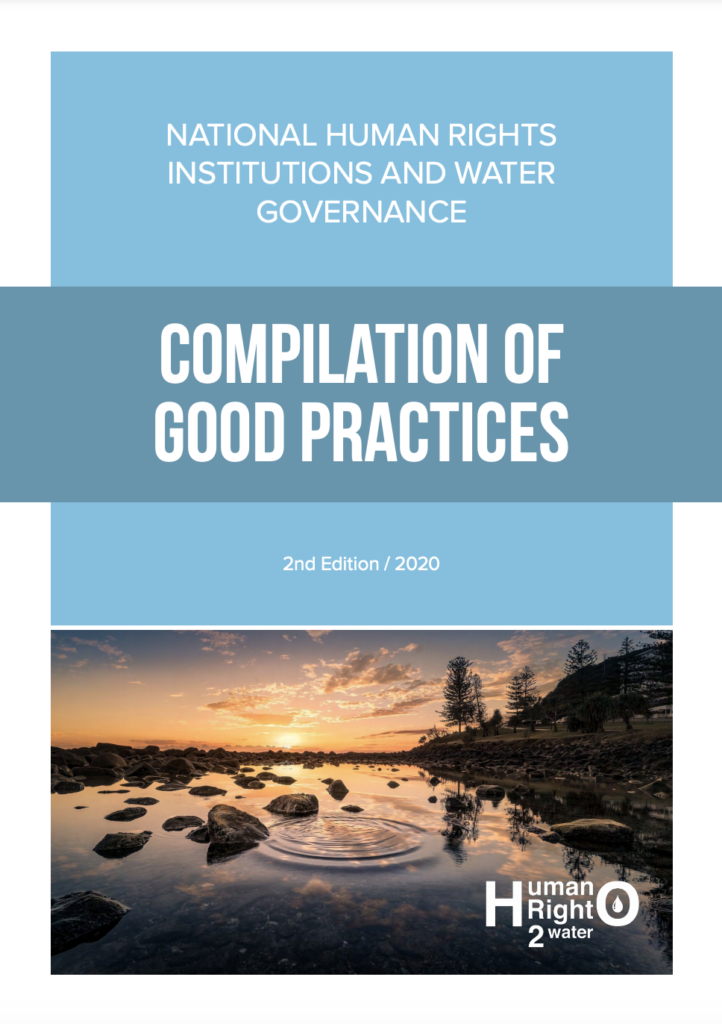National Human Rights Institutions (NHRIs) can help people to realise their human rights to water and sanitation through their role as independent advisors to government, and their capacity for promotion, protection, and monitoring of human rights. Human Right 2 Water supports their work by sharing examples of good practices in this field through its new publication on National Human Rights Institutions and Water Governance – Compilation of Good Practices
This publication, supported by End Water Poverty, seeks to build on innovative and positive experiences to contribute towards a community of practice of NHRIs wishing to enhance their role in water governance for the realisation of human rights.
The Compilation is divided into three parts. Section 1 on Good Practices gathers examples of water governance practices adopted by various NHRIs, with reference to case studies from every region. This first section includes a general classification and conceptualisation of good practices grouped according to the responsibilities and roles of NHRIs.
Section 2 on Summaries of NHRIs’ water governance activities provides an outline of several institutions’ work in relation to water governance. This section offers concrete examples to illustrate in detail how the good practices mentioned in the first section are carried out in practice by NHRIs. It draws upon cases from Eastern and Central Europe, Africa, Latin America and the Asia-Pacific.
Section 3 on Challenges and Obstacles sheds light on both existing and future challenges along with obstacles encountered by participating NHRIs.
Human Right 2 Water reiterates its gratitude to all participating institutions who have contributed by sharing their practices. The Compilation will be disseminated to NHRIs worldwide to facilitate exchange of information among peers on water governance for the realisation of human rights.


